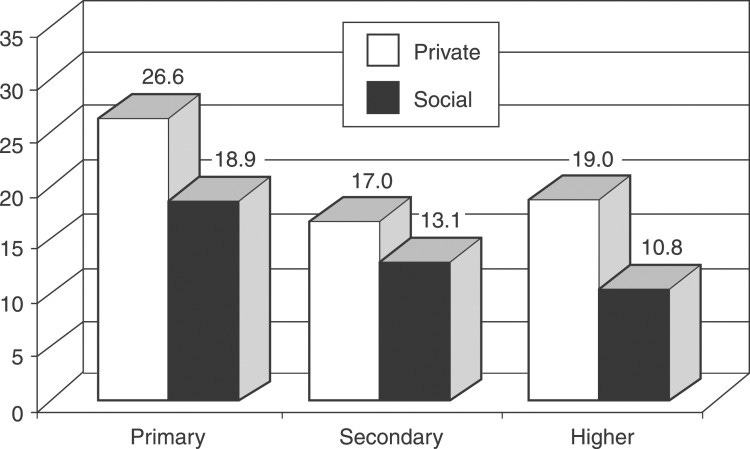One of the easiest ways to come up with interesting thought experiments is by stretching or shortening the time component of a common activity.
What if people lived forever?
What if pregnancy lasted 9 weeks, instead of 9 months?
What if a day lasted 48 hours instead of 24?
These exercises are fun, because they let us stretch our thinking and often lead to interesting conclusions. By framing your question as a what-if, it becomes easier to remove perceived barriers that trap up in a status quo mindset. Since it’s “just a game” there are no penalties for coming up with answers that seem radically out-of-the-box.
Last week, we played this game with education and asked: what if education didn’t end?
For some, education never begins in the first place. Whether or not you receive a primary education is largely a function of where you’re born, and this has correlations with factors like childhood mortality and sociability. Increasing the number of people that receive basic education is important because data shows that some of the largest returns to an individual come from these fundamental lessons.
Education is so highly correlated with personal and economic success that there are academic studies focused on measuring the return on education. A 2004 paper on the economics of education calculated that an individual can expect a 26% return on investment for primary education, and that the average rate of return for subsequent years of schooling was about 10%.

Choose a random person out of the 7.7 billion on earth, and this calculation will probably hold true. However, we know that countries value education differently. The returns for basic education are most obvious in places like the South Asia and Sub-Saharan Africa, where receiving a primary education puts you significantly ahead of your peers. The chart below shows the gap between the baseline education levels in these regions and the average individual.

If you live in a higher income country, basic educational institutions tend to be taken for granted. For citizens in these countries, additional years of schooling are needed to achieve a similar rate of return.
Intuitively, this make sense: if all of your peers received the same basic education, the differentiating factor becomes your choice of university and major. For many places in the world, post-secondary education is becoming more common.

For citizens in these countries, basic literacy is a prerequisite for most jobs, and the question has become: how to maximize your return on investment?
As the world becomes more educated, it’s important to understand what path will give you the best returns. Today, simply having a college degree is a huge leg up. In the future, this won’t be the case.
The graph below shows how education is distributed globally and what it is projected to look like in the future.

From the graph, we can see that the number of people with “No Education” will drop to nearly zero, while the number of secondary and post secondary educated people will make up more than 50% of the adult population.
We’ve already begun moving towards a distributed workforce, with many companies going remote and opening their recruitment efforts to international applicants. You’re no longer competing against your former classmates in the city that you live, but from everyone else in the world. The playing field has gotten much, much bigger. Winning this game means understanding what to focus on.
The internet gives us the ability to extend our education for next to nothing. Most people don’t take advantage of this fact because online learning lacks the structure that we’ve come to expect from universities.
If you’re like me, you’ll be working from home for the foreseeable future. Replacing your commute with just a few hours of learning each week will massively boost your creativity and make for a more intellectually rewarding experience. There is an apocryphal story making the rounds about Isaac Newton producing his theory of calculus during a quarantine caused by the plague. While this may or may not be true, there is something stimulating about long stretches of uninterrupted time.
I’m putting together a Lifetime Curriculum that will be my roadmap for continuous education. Rather than relying on textbooks that are out of date by the time they’re written, this curriculum will include links to Youtube videos, seminal papers, and blog posts from the world’s best and brightest.
To do this, I need your help. If you have a favorite resource or compilation of materials related to a topic you’re passionate about, I want to hear it. You can contribute by replying directly to this email or participating in an upcoming thread for subscribers.
I’ll be synthesizing this information into a format that is structured, self-paced, and reinforced into memory through spaced repetition techniques. I can’t wait to see what we come up with together. 🚀
If you enjoyed this essay, please consider sharing it with a friend. Sunday Scaries doesn’t have paid subscriptions yet, so the best way to help support this publication is to spread the word.
Sunday Scaries is a newsletter that answers simple questions with surprising answers. It's part soapbox, part informative. It's free, you’re reading it right now, and you can subscribe by clicking the link below 👇

